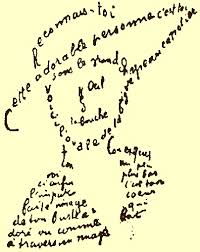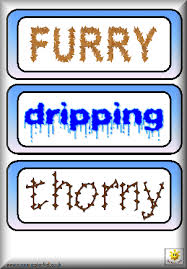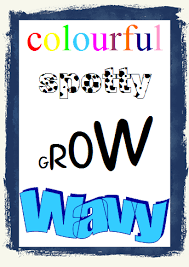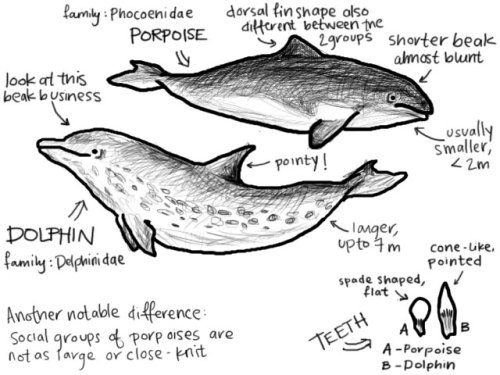For more activities, games, videos, and so on, visit: http://www.canadiangeographic.ca/kids/default.asp
Blog for English as a Foreign Language Students and Teachers who want to get some ideas and exercises for their classes.
20 Mar 2012
ESO2: Let's visit Canada!
Find out all the bizarre facts about this big country!
19 Mar 2012
ESO4_Listening: I feel under the weather (sick)
LISTENING EXERCISE "SICK"
What's the matter? When you feel under the weather it means that you don't feel very well. You can have some symptoms of an illness, like a runny nose or constant sneezing for a cold or even the flu. Therefore, you can either go to the doctor to have some medical prescription and a medication, or you can try a home made remedy, like drinking orange juices, have a hot soup or take herbal medicine (NOTICE: medicine as UNCOUNTABLE NOUN: some medicine)
I. Pre-Listening Exercises [Top]
Name several illnesses that keep people from going to work or school. Then, discuss the symptoms for each and remedies and treatments for curing the problem.
Listen to the conversation by pressing the "Play" button and then answer the questions.
[ Other Audio Options: Play RealMedia | Play Window Media ]
Listen to the conversation again as you read the Quiz Script.
Think of a time during the last year when you got really sick. What was the problem? Did you go to the doctor? If so, what did the doctor tell you to do, eat, or buy to get better? If you didn't go to the doctor, what did you try to recover from your illness?
What home remedies do you have in your country for the following illnesses or situations? Search for information in books or online to help you answer this question:
What's the matter? When you feel under the weather it means that you don't feel very well. You can have some symptoms of an illness, like a runny nose or constant sneezing for a cold or even the flu. Therefore, you can either go to the doctor to have some medical prescription and a medication, or you can try a home made remedy, like drinking orange juices, have a hot soup or take herbal medicine (NOTICE: medicine as UNCOUNTABLE NOUN: some medicine)
I. Pre-Listening Exercises [Top]
Name several illnesses that keep people from going to work or school. Then, discuss the symptoms for each and remedies and treatments for curing the problem.
 |
| II. Listening Exercises [Top] |
Listen to the conversation again as you read the Quiz Script.
| III. Vocabulary Activities [Top] |
| Review the key vocabulary from the conversation: | [ Why do these? ] |
| IV. Post-Listening Exercises [Top] |
| V. Online Investigations - [ What's This? ] [Top] |
- cold
- stomachache
- hangover
- hiccups
- sore throat
ESO4: Euro-scola 2012
Hi guys!
We should start reading the chapters (comic style) of the contest and do the different tasks! Each team should hand in a composition promoting Badalona and a nice picture of our city for Wednesday. Monday we'll read the first chapter and try to finish the second one, set in Prague. Ahoi! Go fot it!
http://euro-scola.com/

- How much have you learnt about the astronomic clock of Prague? It can measure 4 types of times... which ones?
- What about the different scholarship programmes and collaboration ones? What are the names of them? Who were these people?
- What advantages do we have for our mobile phones when we travel abroad within the EU?
- 4bpower1
- 4bpower2
- You already know the password ;)
15 Mar 2012
ESO1 & 2: CALLIGRAMS COMPETITION UPDATE: BACHILLERATO animation.
Are you competing for the Literary Awards this Sant Jordi? Here you can find some ideas for your calligrams! From simpler to more elaborated ones.
A calligram is a phrase, or word in which the typeface or calligraphy is arranged in a way that creates a visual image.















Look at these examples: what do these words mean? how are they displayed? what's the lonk between shape/size/colour and meaning?



Let's go a step further: what can you see? how are drawings made?


Now look at this... what can you see? And what can you read? Is it typed or handwritten? Can you identify the languages?




Finally, you can have works of art that combine words and plastic arts... and more!
So now it's your turn! Get inspired and hands on to create your own calligram! Some of those above are examples by very famous poets from the Avantgardes, some written by students like you... Surprise us!
BACHILLERATO
Challenge: try to create your own calligram for these single WORDS using only TYPOGRAPHY- you can play with size, font, shape, separation of letters and even go beyond! i.e. add movement, music, colour and sounds. Random number 1 to 40: (google random number generator)
1. idea 2. horizon 3.elevator 4. gravity 5.comedy/drama 6. capitalism/communism 7. oil 8. the last supper 9. vampire 10. robbery 11, inflation 12 stock market 13. vertigo 14. voyeur 15. silicone 16. ill 17. balloons 18. tsunami 19. spiderman 20. zipper 21. clock 22. pirate 23. exit 24. magic 25. fast food 26. diet 27. moon 28. parallel 29. tunnel 30. Marilyn 31. rabbit 32. homosexual 33. heterosexual 34. confom 35. cough 36. superstitious 37. Dali 38. Van Gogh 39. eclipse 40. book
You can propose more words, concepts and celebrities!
Critical thinking video:
https://thelanguagenerds.com/2021/42-clever-calligrams-that-visualize-the-meanings-of-various-words/
Typos alert (and advisory!): https://thelanguagenerds.com/2019/typos-that-had-disastrous-effects/
Etiquetas:
CALLIGRAM,
CALLIGRAMS,
design,
ESO,
ESO1,
ESO2,
SANT JORDI
ESO3 & 4: Writing Contest (for Sant Jordi's Diada)
Sant Jordi is closer than you might think so... let's get some inspiration for our writing contest!
We propose you to write a poem in English. In order to avoid the scary "white page syndrome", here you have some ideas and advice... and some examples! (from http://www.stageoflife.com/StageHighSchool/OtherResources/WeeklyHighSchoolWritingContest.aspx)
1. Write to discover and explore, not to “tell.” Let your poems examine, Who am I? Where do I come from? Or simply, what do I see out the window? Use colors and sounds.
2. Create a field of safety around yourself, so you’re writing freely, openly and honestly--not to please or impress others. Sometimes it’s fun to write in a sound-bubble of music, I choose instrumentals with no words. Visit a sheltered wild place. To finish my book Foolsgold I set up office on the edge of Chico creek. To write freely I had to forget the inhibiting world of humans! Forget publishing (for now.) Forget awards and comparisons. “Winning” and “losing’ can throw us off kilter in our work.
3. Be a journal-ist. Begin a journal and carry it with you. Jot notes on: who, what, where, when. Forget whether you’re writing a poem or prose, fiction or non-fiction All good writing helps us SEE.
4. Gather the right tools, especially the right notebooks. Find the size best for you, with paper you like to make marks on. Get a pen that inspires you. Collect color pens. I love fountain pens and fineliners. Transfer your words to a laptop later. Create a playing field. Be an otter. Carry Scotch Magic tape and scissors. Make your journal into a collage. Do this for fun.
5. Paint a picture with language. Find a painting or photo and put it into words. Create images and metaphors, they carry feeling. Metaphors compare one thing to another. “I feel like the pale cloud drifting off the edge of the photo.”
6. Play with language. Learn words from other languages. Find words from the native culture in your area. Maidu for water is momoli. Mugwort is munmunum. Silly is sukulilli. Notice the sounds of words. Gather them. Go for nouns and verbs or words that are both, “nerbs,” I sometimes call them. Trigger. Spin. Wolf. Flow.
7. We’re here to communicate. What do you want to convey? Jot down what you want to convey in your notebook. Then forget about it and it will rise up in your writing.
8. Persistence. Don’t quit. The water buffalo crosses the muddy river if he keeps only the slightest motion forward. If he stops completely, his hooves get stuck in the mud. And also, DO quit many things that take you away from what you most love to do.
9. GATHER. Ducks flock. Create a small writing group. The Sleepy Orange Trust group. The asteroid cats. The Live Poets Society. Meet in a café. Encourage each other. Don’t be too critical. Tell each other what you like most in each other’s work. Point out strong images (word pictures.) Give each other prompts. But also…
10. BE ALONE. You’ll see better. Write in bed, in the bath, on the road, walk and wander alone and write. Always have your notebook with you.
11. Listen and take notes. Words will be given to you. Jot down conversations you hear. Notice signs and words around you. Bayliss Blue Gum Road. Caterpillars for Sale. Write at night, while driving, even if you’re in bed, at dawn, or in the bath, be ready to catch a poem or a sentence when it comes.
12. Read poems. Be inspired by Emily Dickinson, ee cummings, James Joyce, Allen Ginsberg, Francisco Alarcon, Jane Hirshfield. Go to the library and take out Finnegan’s Wake by James Joyce and see how he played with language. This will help free you. Sit on the floor of the library or a used bookstore and gather snippets from ten books.
13. We’re here to be happy. To play. To extend love. Translator Coleman Barks called the Persian poet Rumi “a heartmaster.” Read Rumi. We are not our bodies. Talk to your spirit, your inner guide. Listen to your soul. Ask your most holy, higher self, what it wants you to write. Take down your soul’s dictation.
14. Treasure yourself. Poet Robert Bly wrote, “You came into this world as a radiant package of cosmic wonders, as an unspeakably sublime bolt of primordial resonance, as a barely coalesced jumble of blinding beauty—and all your parents wanted was a good little girl or a good little boy.”

Writing Contest - Real World Teen Issues
Welcome to StageofLife.com's free Writing Contest for High School Students. From this page you'll be able to enter the monthly teen writing contest and help inspire, educate or illuminate your peers (and older generations) with your experiences and thoughts.
|
Poem Writing Tips*

Poem Writing Tips from Susan Wooldridge

Whether your a teacher or student, writing poetry can be difficult. Below you will find tips to writing poetry from Susan Wooldridge, author of poemcrazy: freeing your life with words. Susan shares with Stage of Life, her tips to writing poetry.
Take a look, you may be inspired. Share your poems with us...
1. Write to discover and explore, not to “tell.” Let your poems examine, Who am I? Where do I come from? Or simply, what do I see out the window? Use colors and sounds.
2. Create a field of safety around yourself, so you’re writing freely, openly and honestly--not to please or impress others. Sometimes it’s fun to write in a sound-bubble of music, I choose instrumentals with no words. Visit a sheltered wild place. To finish my book Foolsgold I set up office on the edge of Chico creek. To write freely I had to forget the inhibiting world of humans! Forget publishing (for now.) Forget awards and comparisons. “Winning” and “losing’ can throw us off kilter in our work.
3. Be a journal-ist. Begin a journal and carry it with you. Jot notes on: who, what, where, when. Forget whether you’re writing a poem or prose, fiction or non-fiction All good writing helps us SEE.
4. Gather the right tools, especially the right notebooks. Find the size best for you, with paper you like to make marks on. Get a pen that inspires you. Collect color pens. I love fountain pens and fineliners. Transfer your words to a laptop later. Create a playing field. Be an otter. Carry Scotch Magic tape and scissors. Make your journal into a collage. Do this for fun.
5. Paint a picture with language. Find a painting or photo and put it into words. Create images and metaphors, they carry feeling. Metaphors compare one thing to another. “I feel like the pale cloud drifting off the edge of the photo.”
6. Play with language. Learn words from other languages. Find words from the native culture in your area. Maidu for water is momoli. Mugwort is munmunum. Silly is sukulilli. Notice the sounds of words. Gather them. Go for nouns and verbs or words that are both, “nerbs,” I sometimes call them. Trigger. Spin. Wolf. Flow.
7. We’re here to communicate. What do you want to convey? Jot down what you want to convey in your notebook. Then forget about it and it will rise up in your writing.
8. Persistence. Don’t quit. The water buffalo crosses the muddy river if he keeps only the slightest motion forward. If he stops completely, his hooves get stuck in the mud. And also, DO quit many things that take you away from what you most love to do.
9. GATHER. Ducks flock. Create a small writing group. The Sleepy Orange Trust group. The asteroid cats. The Live Poets Society. Meet in a café. Encourage each other. Don’t be too critical. Tell each other what you like most in each other’s work. Point out strong images (word pictures.) Give each other prompts. But also…
10. BE ALONE. You’ll see better. Write in bed, in the bath, on the road, walk and wander alone and write. Always have your notebook with you.
11. Listen and take notes. Words will be given to you. Jot down conversations you hear. Notice signs and words around you. Bayliss Blue Gum Road. Caterpillars for Sale. Write at night, while driving, even if you’re in bed, at dawn, or in the bath, be ready to catch a poem or a sentence when it comes.
12. Read poems. Be inspired by Emily Dickinson, ee cummings, James Joyce, Allen Ginsberg, Francisco Alarcon, Jane Hirshfield. Go to the library and take out Finnegan’s Wake by James Joyce and see how he played with language. This will help free you. Sit on the floor of the library or a used bookstore and gather snippets from ten books.
13. We’re here to be happy. To play. To extend love. Translator Coleman Barks called the Persian poet Rumi “a heartmaster.” Read Rumi. We are not our bodies. Talk to your spirit, your inner guide. Listen to your soul. Ask your most holy, higher self, what it wants you to write. Take down your soul’s dictation.
14. Treasure yourself. Poet Robert Bly wrote, “You came into this world as a radiant package of cosmic wonders, as an unspeakably sublime bolt of primordial resonance, as a barely coalesced jumble of blinding beauty—and all your parents wanted was a good little girl or a good little boy.”

BE CREATIVE!
ESO3. Unit 4. Chores.
A. What of these chores can you identify? Match letters with numbers:
1. mow the lawn, 2.wash the dishes, 3. set/lay the table, 4. make the bed, 5. water the plants,
6. walk the dog, 7. do the shopping, 8. do the washing 9. wash the car, 10. hoover/vacuum the carpets,
11. take the rubbish/trash out, 12. rest
B. Now look at this video: how many chores can you spot? Which ones?
C. Finally, here you have a famous videoclip. Who are they? What are they doing? What does Freddy Mercury want to do? Consider these chores:
Sweep and mop the floor, dust the furniture, clean the windows, do the cooking, tidy your room. What of these activities can you see in the videoclip? What's the meaning of these chores in your language?
EXTRA: What chores do you have to do at home? When? How often? Which ones you don't have to do?
I have to make my bed before I go to school every day.
(...) I usually don't have to cook the dinner. (...)
GAME: Two groups. One mimics one chore, his/her group has to guess what chore it is.
Etiquetas:
CARIBBEAN,
CHORES,
DOMESTIC TASKS,
ESO,
ESO3
6 Mar 2012
ESO4_Revision for the exam and notes.
Here you have the notes for revising Unit 3. I hope you enjoyed the trip to New Zealand/Aotearoa and Polynesia... I'm looking forward to visit our next destination! Study hard! Aloha!!
B loig eso4 unit3 senses
View more presentations from bcnhumberto.
To keep revising check these links:
PRESENT PERFECT with EVER/JUST/YET: http://www.englishexercises.org/makeagame/viewgame.asp?id=2705
EASY have/has:
http://www.ego4u.com/en/cram-up/grammar/present-perfect-simple/exercises?03
Fill in the gaps:
http://www.esl-lounge.com/student/grammar/2g11-past-simple-present-perfect-gap-fill.php
Complete explanation and lots of exercises for the Present Perfect: http://www.ego4u.com/en/cram-up/grammar/present-perfect-simple/
VOCABULARY:
Illnesses revision: http://www.englishexercises.org/makeagame/viewgame.asp?id=1235
Illnesses extension:
http://www.learnenglish.be/voc2_doctor_study.htm
http://www.english-4u.de/health2.htm
To keep revising check these links:
PRESENT PERFECT with EVER/JUST/YET: http://www.englishexercises.org/makeagame/viewgame.asp?id=2705
EASY have/has:
http://www.ego4u.com/en/cram-up/grammar/present-perfect-simple/exercises?03
Fill in the gaps:
http://www.esl-lounge.com/student/grammar/2g11-past-simple-present-perfect-gap-fill.php
Complete explanation and lots of exercises for the Present Perfect: http://www.ego4u.com/en/cram-up/grammar/present-perfect-simple/
VOCABULARY:
Illnesses revision: http://www.englishexercises.org/makeagame/viewgame.asp?id=1235
Illnesses extension:
http://www.learnenglish.be/voc2_doctor_study.htm
http://www.english-4u.de/health2.htm
ESO4: Kia ora! Haere mae ki Aotearoa! Welcome to New Zealand!

Remember to finish your group task about New Zealand:
- Paper
- Display
- PowerPoint Presentation
Group 2: Cities (Auckland, Christchurch, Wellington, Queenstown)
Group 3: Sports (Rugby, Extreme Sports-bungy/zorbing, Sailing/Climbing, Cricket)
Group 4: Maori (Hongi/Greetings, Moko/Tattoo, Kai-Hangi/Food, Haka and waiata/Haka and songs)
Group 5: Nature (Mountain ranges, volcanoes and earthquakes, flora-the fern, fauna-the kiwi)
Group 6: Geography and history (geography, climate, history/recent news, economy)

ESO2: School objects

Revise your vocabulary of school objects and subjects with these games: EASY...http://enjoyenglish.free.fr/english/primaire/concentration/school/school_.html
Extra games:
DRAG AND DROP: http://www.crickweb.co.uk/ks1literacy.html
ESO1: Animals JClic + Describe your favourite animal!
Here you have some games to practise your vocabulary.
http://clic.xtec.cat/db/act_en.jsp?id=3579

Remember to hand in the description of your favourite animal and your corresponding animal for the ABC ZOO!

A dolphin belongs to the kingdom of animals, vertebrates, mammals. A dolphin lives in water. There are salt-type and fresh-type dolphins. Some kinds of salt-types are spinners, bottle-nosed, and common. Some types of fresh-types are Irrawaddy, amazon, Ganges. There is 50+ species of dolphins and more to discover. Recent studies say that dolphins are just as smart as people if not more, and should be called non-human-people. They breath through blowholes not their mouths, like people. Dolphins eat fish, octopus, squid, crap, and other seafood. The most popular kind of dolphin for parks is the bottle-nosed dolphin. If you want to buy a dolphin, you better start saving your money! Dolphins are cetaceans (see-tay-shuns). Dolphins live in pods or schools and if a lot of dolphins get together its a herd. Baby dolphins are called calfs. Porpoises are similar but are not the same! Look at the differences! (*porpoise= marsopa).

http://clic.xtec.cat/db/act_en.jsp?id=3579

Remember to hand in the description of your favourite animal and your corresponding animal for the ABC ZOO!

A dolphin belongs to the kingdom of animals, vertebrates, mammals. A dolphin lives in water. There are salt-type and fresh-type dolphins. Some kinds of salt-types are spinners, bottle-nosed, and common. Some types of fresh-types are Irrawaddy, amazon, Ganges. There is 50+ species of dolphins and more to discover. Recent studies say that dolphins are just as smart as people if not more, and should be called non-human-people. They breath through blowholes not their mouths, like people. Dolphins eat fish, octopus, squid, crap, and other seafood. The most popular kind of dolphin for parks is the bottle-nosed dolphin. If you want to buy a dolphin, you better start saving your money! Dolphins are cetaceans (see-tay-shuns). Dolphins live in pods or schools and if a lot of dolphins get together its a herd. Baby dolphins are called calfs. Porpoises are similar but are not the same! Look at the differences! (*porpoise= marsopa).

ESO3_Unit 4: Welcome to the Caribbean! Bob Marley, 'No Woman No Cry'
Welcome to the Caribbean!
http://www.youtube.com/watch?v=nHsYdLpQnp4
Fill in the gaps with the following 10 words:
NIGHT, FORGET, OBSERVING, COOK, TEARS (x4), REMEMBER (x2), MEET, LIGHT. BE, PUSH
NO WOMAN NO CRY, by BOB MARLEY (JAMAICA)
NO WOMAN, NO CRY (X4)
´CAUSE I _________WHEN WE USED TO SIT
IN THE GOVERNMENT YARD IN TRENCHTOWN
OBA, _________THE HYPOCRITES
AS THEY WOULD MINGLE WITH THE GOOD PEOPLE WE _______
GOOD FRIENDS WE HAVE HAD, OH GOOD FRIENDS WE´VE LOST ALONG THE WAY
IN THIS BRIGHT FUTURE YOU CAN´T ________YOUR PAST
SO DRY YOUR _____I SAY
NO WOMAN, NO CRY
NO WOMAN, NO CRY
LITTLE DARLIN´ DON´T SHED NO _____
NO WOMAN, NO CRY
SAID, SAID, SAID I _______WHEN WE USED TO SIT
IN THE GOVERNMENT YARD IN TRENCHTOWN
AND THEN GEORGIE WOULD MAKE THE FIRE _______
LOG WOOD BURNIN´ THROUGH THE ______
THEN WE WOULD ______CORN MEAL PORRIDGE
OF WHICH I´LL SHARE WITH YOU
MY FEET IS MY ONLY CARRIAGE
SO I´VE GOT TO _____ON THROUGH
BUT WHILE I´M GONE...
EV´RYTHING´S GONNA ____ALRIGHT (X8)
SO, NO WOMAN, NO CRY
NO, NO WOMAN, NO WOMAN, NO CRY
OH, LITTLE DARLING, DON´T SHED NO ____
NO WOMAN, NO CRY
NO WOMAN, NO WOMAN, NO WOMAN, NO CRY
NO WOMAN, NO CRY
OH, MY LITTLE DARLIN´ PLEASE DON´T SHED NO ____
NO WOMAN, NO CRY, YEAH.
http://www.youtube.com/watch?v=nHsYdLpQnp4
NIGHT, FORGET, OBSERVING, COOK, TEARS (x4), REMEMBER (x2), MEET, LIGHT. BE, PUSH
NO WOMAN NO CRY, by BOB MARLEY (JAMAICA)
NO WOMAN, NO CRY (X4)
´CAUSE I _________WHEN WE USED TO SIT
IN THE GOVERNMENT YARD IN TRENCHTOWN
OBA, _________THE HYPOCRITES
AS THEY WOULD MINGLE WITH THE GOOD PEOPLE WE _______
GOOD FRIENDS WE HAVE HAD, OH GOOD FRIENDS WE´VE LOST ALONG THE WAY
IN THIS BRIGHT FUTURE YOU CAN´T ________YOUR PAST
SO DRY YOUR _____I SAY
NO WOMAN, NO CRY
NO WOMAN, NO CRY
LITTLE DARLIN´ DON´T SHED NO _____
NO WOMAN, NO CRY
SAID, SAID, SAID I _______WHEN WE USED TO SIT
IN THE GOVERNMENT YARD IN TRENCHTOWN
AND THEN GEORGIE WOULD MAKE THE FIRE _______
LOG WOOD BURNIN´ THROUGH THE ______
THEN WE WOULD ______CORN MEAL PORRIDGE
OF WHICH I´LL SHARE WITH YOU
MY FEET IS MY ONLY CARRIAGE
SO I´VE GOT TO _____ON THROUGH
BUT WHILE I´M GONE...
EV´RYTHING´S GONNA ____ALRIGHT (X8)
SO, NO WOMAN, NO CRY
NO, NO WOMAN, NO WOMAN, NO CRY
OH, LITTLE DARLING, DON´T SHED NO ____
NO WOMAN, NO CRY
NO WOMAN, NO WOMAN, NO WOMAN, NO CRY
NO WOMAN, NO CRY
OH, MY LITTLE DARLIN´ PLEASE DON´T SHED NO ____
NO WOMAN, NO CRY, YEAH.
Etiquetas:
BOB MARLEY,
CARIBBEAN,
CULTURE,
ESO,
ESO3,
NO WOMAN NO CRY,
SONG,
SONGS
Subscribe to:
Posts (Atom)




